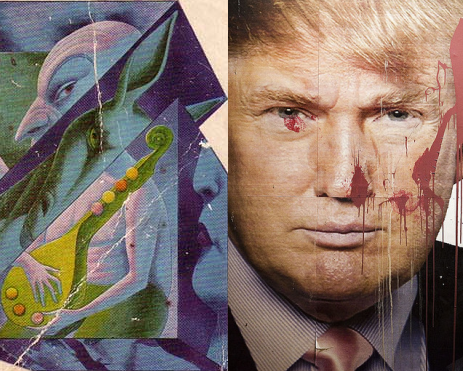 Anyone making predictions about the outcome of the 2016 presidential race is on a fool’s errand. The existence of a Donald Trump candidacy is a disruptor. It creates such chaos and uncertainty that nothing about the race is predictable.
Anyone making predictions about the outcome of the 2016 presidential race is on a fool’s errand. The existence of a Donald Trump candidacy is a disruptor. It creates such chaos and uncertainty that nothing about the race is predictable.
Lately I’ve been thinking about the parallels between Donald Trump as a political candidate and the character of The Mule in Isaac Asimov’s award-winning science fiction trilogy The Foundation. In Asimov’s stunning and groundbreaking books, a mathematician named Hari Seldon discovers a way of predicting the future with great certainty. In Seldon’s model, no one person can have a measurable impact on the future of the galaxy. However, by studying and measuring the actions of large groups of people, he is able to make predictions about the future downfall of civilization. Although he cannot prevent the collapse, Seldon creates “The Foundation” to shorten the period of time of colossal upheaval that will follow.
All goes along swimmingly until the appearance of The Mule. Here’s how it is described in the Asimov Wikia:
The Mule was a powerful mentalic mutant, warlord, and conqueror who posed the greatest threat to the Seldon Plan. His acute telepathic ability to modify the emotions of human beings derailed one of the basic assumptions of Hari Seldon’s psychohistory – that, in general, the responses of human populations to given stimuli will remain the same. [..]
Physically, The Mule was considered a freak by most people who gazed upon him…It was said that one could not look at the Mule without derision.
In fact, The Mule enters the scene pretending to be a clown named ‘Magnifico Giganticus’. Over time, he uses his psychomanipulative powers to sway legions of people to his side and eventually takes over the galaxy.
Donald Trump is our present-day ‘Magnifico Giganticus’. He’s a farcical, clown-like character with a bizarre visage that many look upon with derision. He’s able to sway people into believing that he – a multimillionaire – is a candidate for the average American. More to the point, he’s a disruptive factor that throws sand into the gears of political prognostication.
Economist Paul Krugman explains the key to defeating The Mule and inadvertently, perhaps, Donald Trump:
Which brings us to the Mule, the deus ex mutagen who drives the swerve in the plot halfway through the series. […]
The Mule is a mutant whose ability to control others’ emotions lets him conquer the Foundation and threaten the whole Seldon Plan. To contain the menace, the Second Foundation – a hidden group of psychohistorians, the secret keepers of the Plan – must emerge from hiding. So far, this sounds like any of a hundred tales of the struggle between good and evil. But Foundation isn’t that kind of series. The problem, you see, isn’t how to defeat the Mule and ensure the triumph of truth, justice, and the Foundation way. It is, instead, to get the Plan back on track – and that requires making sure that nobody understands the Plan!
So the Mule (who, as I said, isn’t an entirely unsympathetic character) must be defeated, but the defeat must be subtle – no dramatic space battles, no victory parade, in fact no obvious defeat at all. Characteristically for the whole series, the accomplishment of the Mule’s quiet defeat itself depends crucially on his not understanding the need for subtlety…
I think there are things to learn here about how to defeat Trump. His lack of understanding of the need for subtlety may, in fact, be the key. How Democrats, and even many Republicans at this point, do it is not clear.
Perhaps it’s time for all of us to reread The Foundation trilogy again for clues.



